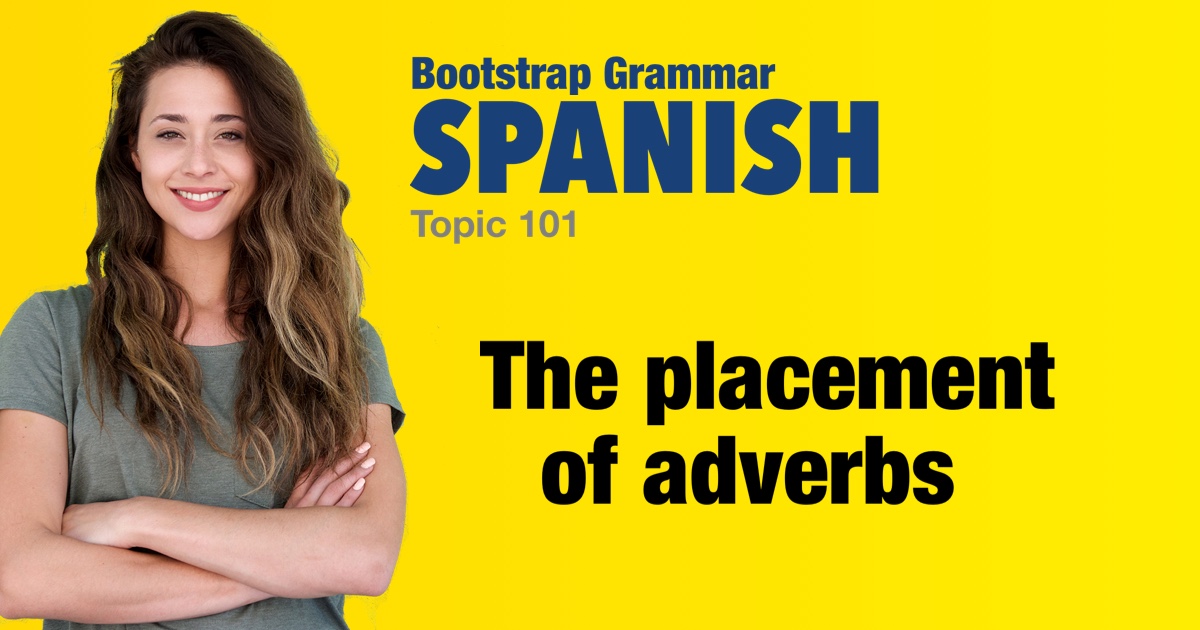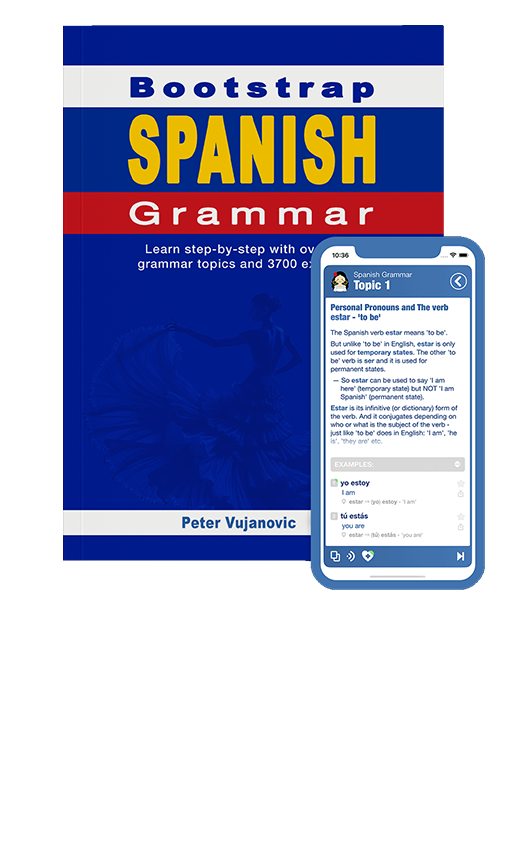Spanish grammar - The placement of adverbs |
|||
|
|||
Adverbs are words that modify verbs, adjectives, or other adverbs, providing additional information about how, when, where, or to what extent something happens. Adverbs of manner, place, and time are placed after the verb. Adverbs of frequency and degree are usually placed before the verb. |
| Examples: | |
|
El gato come bien.
The cat eats well.
|
|
|
María canta mal en la ducha.
María sings badly in the shower.
|
|
|
Estamos aquí para ayudarte.
(We) are here to help you.
|
|
|
Mis abuelos viven cerca de la playa.
My grandparents live nearby the beach.
|
|
|
Vamos allá con nuestros amigos.
(We) are going there with our friends.
|
|
|
El perro está afuera, en el jardín.
The dog is outside in the garden.
|
|
|
Mi padre trabaja dentro de la casa.
My father works inside the house.
|
|
|
Ella siempre llega temprano a la oficina.
She always arrives early at the office.
|
|
|
Voy ahora mismo al supermercado.
(I) am going right now to the supermarket.
|
|
|
Él viene después de la cena.
He comes after dinner.
|
|
|
Los niños salen tarde de la escuela.
The children go out latefrom school.
|
|
|
Siempre estudio español por la noche.
(I) always study Spanish at night.
|
|
|
Nunca fumo en casa.
(I) never smoke at home.
|
|
|
A veces corro en el parque con mi perro.
(I) sometimes run in the park with my dog.
|
|
|
Rara vez nado en la piscina del gimnasio.
(I) rarely swim in the gym's pool.
|
|
|
A menudo leo libros de ciencia ficción.
(I) often read science fiction books.
|
|
|
Estoy muy cansado después de trabajar.
(I) am very tired after working.
|
|
|
Ella está bastante feliz con su nuevo trabajo.
She is quite happy with her new job.
|
|
|
El coche es demasiado caro para comprar.
The car is too expensive to buy.
|
|
|
El profesor es poco amable con los estudiantes.
The teacher is not very kind to the students.
|
|
|
Estamos bastante ocupados con el nuevo proyecto.
(We) are quite busy with the new project.
|
|
|
Nos vemos pronto en la reunión.
(We) will see each other soon at the meeting.
|
|
|
Ven ahora mismo a la sala de estar.
Come right now to the living room.
|
|
|
Él llega enseguida a la fiesta.
He arrives immediately at the party.
|
|
|
Estamos lejos de nuestra casa.
(We) are far from our house.
|
|
|
El atleta corre rápido en la carrera.
The athlete runs fast in the race.
|
|
|
Ella escribe despacio para evitar errores.
She writes slowly to avoid mistakes.
|
|
|
Vivimos juntos en un apartamento.
(We) live together in an apartment.
|
|
|
Lo hago así para que lo entiendas.
(I) do it like this so that you understand.
|
|
|
Mi madre se levanta temprano para trabajar.
My mother gets up early to work.
|
|
 |
|




